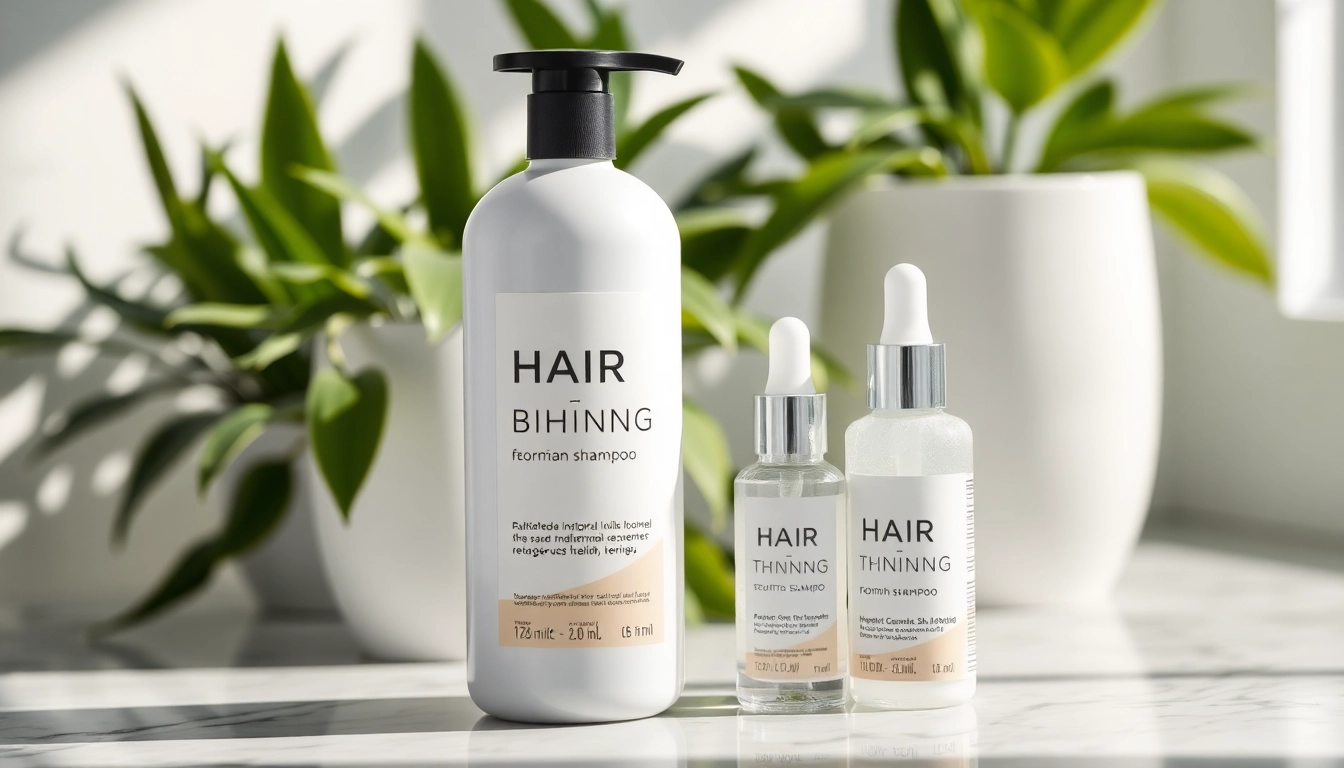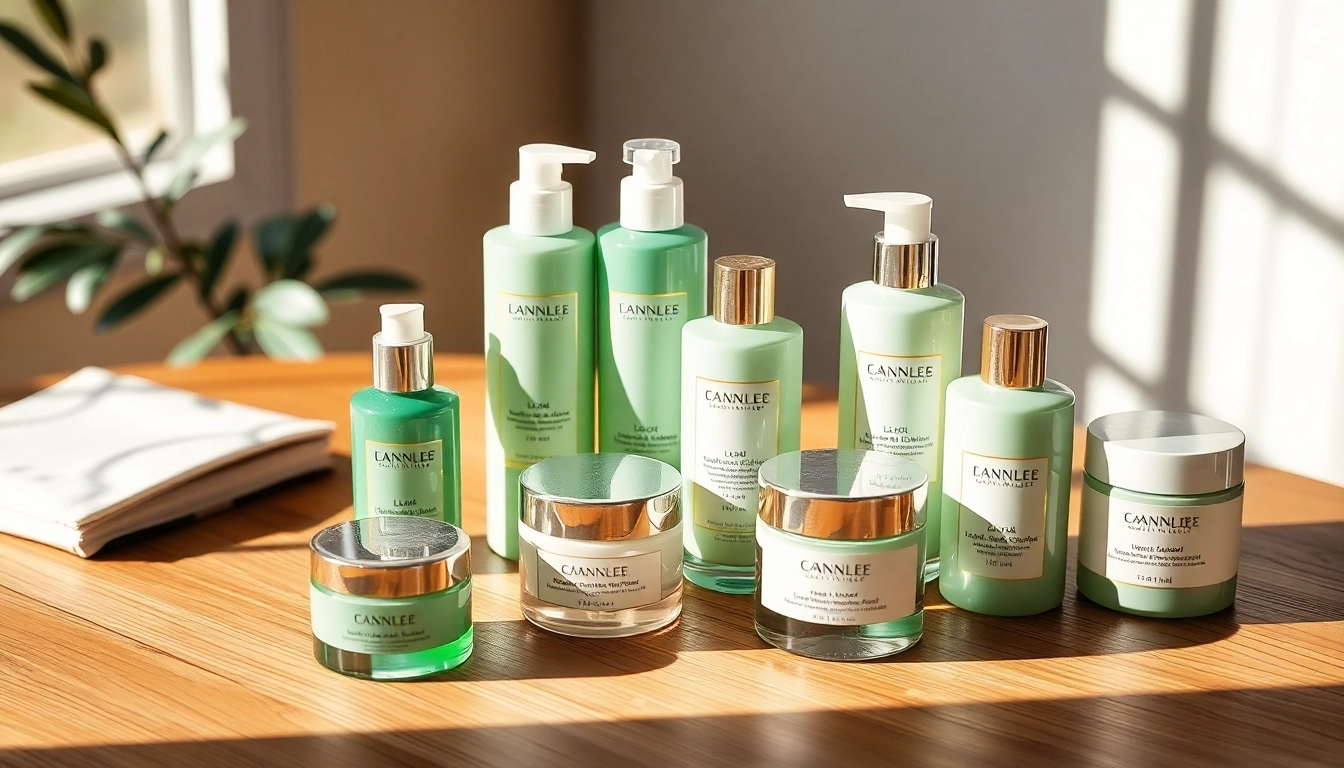Understanding Hair Thinning
Hair thinning is a prevalent concern that affects both men and women across various age groups. It can stem from multiple factors, leading to a gradual decrease in hair density, resulting in patches of baldness or an overall thinning appearance. To effectively combat hair thinning, it’s essential to understand its root causes and the many contributing lifestyle factors. This comprehensive guide aims to illuminate the complexities of hair thinning and provide actionable insights on how to treat and manage it effectively. A critical element of this treatment is the use of a hair thinning shampoo, which can play a vital role in your hair care regimen.
Common Causes of Hair Thinning
Several factors can contribute to hair thinning, and recognizing them can aid in the selection of appropriate treatments:
- Hormonal Changes: Conditions such as pregnancy, thyroid dysfunction, or menopause can trigger hormonal fluctuations that result in hair loss.
- Stress: Psychological stress can impact hair health significantly, leading to conditions like telogen effluvium, where hair follicles enter a resting phase and eventually shed.
- Medical Conditions: Conditions like alopecia areata or scalp infections can also lead to thinning hair. Autoimmune disorders can cause the body to attack hair follicles, resulting in hair loss.
- Nutritional Deficiencies: A lack of essential nutrients such as protein, iron, vitamin D, and omega-3 fatty acids can directly impact hair health and lead to thinning.
- Medication: Certain medications can have side effects that include hair thinning, which is common with drugs used for cancer treatment, arthritis, and depression.
The Impact of Lifestyle on Hair Health
Your daily habits can significantly affect the quality and health of your hair. Factors such as diet, exercise, and skincare routines contribute to hair vitality:
- Diet: A well-balanced diet rich in vitamins, minerals, and proteins supports hair growth and minimizes the risk of thinning.
- Hydration: Staying hydrated helps maintain scalp moisture and nourishes hair follicles, preventing dryness and brittleness.
- Harsh Hair Treatments: Frequent use of heat styling tools and chemical treatments can lead to hair damage, contributing to thinning over time.
How Genetics Plays a Role in Hair Loss
Genetic predisposition is one of the most significant factors in hair thinning. Male and female pattern baldness are hereditary conditions characterized by a specific pattern of hair loss influenced by genetics:
- Male Pattern Baldness: Often referred to as androgenetic alopecia, this condition is characterized by a receding hairline and thinning at the crown. It is predominantly influenced by genetics and age.
- Female Pattern Hair Loss: Similar to male pattern baldness but often involves diffuse thinning across the scalp, this condition can also be hereditary and is exacerbated by hormonal changes.
The Role of Shampoos in Preventing Hair Thinning
Using the right shampoo can significantly impact hair health, especially for those experiencing thinning. Hair thinning shampoos are formulated to nourish the scalp, strengthen hair follicles, and promote growth.
How Hair Thinning Shampoo Works
Hair thinning shampoos often incorporate specialized ingredients that target the underlying issues of hair loss:
- Clearing Follicles: These shampoos help in unclogging hair follicles to promote healthy growth. Ingredients such as salicylic acid are commonly used for this purpose.
- Blood Circulation: Many formulations contain herbal extracts that improve circulation to the scalp, ensuring that hair follicles receive sufficient nutrients, oxygen, and blood flow.
- Hydration and Strength: They often include hydrating agents that strengthen hair strands, making them less susceptible to breakage, ensuring a fuller appearance.
Key Ingredients to Look For
When choosing a hair thinning shampoo, it’s crucial to look out for key ingredients known for their effectiveness:
- Biotin: This B vitamin is essential for hair health, helping to strengthen hair and prevent brittleness.
- Caffeine: Known for stimulating hair growth, caffeine improves blood circulation in the scalp.
- Ketoconazole: Often found in medicated shampoos, ketoconazole combats dandruff and promotes healthy hair growth.
- Niacin: This vitamin increases blood circulation to the scalp, ensuring nutrients reach the hair follicles.
- Argan Oil: Rich in fatty acids and vitamin E, argan oil nourishes and hydrates hair, improving strength and elasticity.
How to Choose the Right Shampoo
Selecting the appropriate shampoo can feel overwhelming due to the plethora of options available. Here are a few tips to make your decision easier:
- Identify Your Hair Type: Understand whether your hair is oily, dry, or normal to select a shampoo that caters to your specific needs.
- Check the Ingredients: Look for shampoos that include the key ingredients mentioned earlier, particularly if they are tailored for hair thinning.
- Read Reviews: Customer feedback can often provide insight into product effectiveness, helping you make an informed decision.
- Consult with a Dermatologist: If unsure, consulting with a dermatologist can provide guidance tailored specifically to your condition and requirements.
Complementary Treatments to Enhance Hair Care
While effective shampoos can significantly reduce hair thinning, it is essential to integrate complementary treatments into your hair care regimen for optimal results.
Conditioners and Serums for Thinning Hair
Conditioners and serums work synergistically with shampoos to enhance hair health:
- Deep Conditioning Treatments: Using deep conditioning treatments rich in fatty acids and proteins can restore moisture and reinforce the hair structure.
- Leave-in Serums: These products often contain beneficial oils, vitamins, and botanical extracts that nourish hair throughout the day, protecting it from environmental damage.
Natural Remedies That Assist in Hair Restoration
In addition to commercial products, natural remedies can offer added benefits for hair restoration:
- Essential Oils: Oils such as rosemary and lavender have been shown to promote hair growth. Incorporating these into your routine through massage can stimulate circulation.
- Aloe Vera: Known for its soothing properties, aloe vera can help hydrate the scalp and reduce inflammation.
- Onion Juice: While unusual, some studies indicate that onion juice may help improve hair growth due to its high sulfur content, which can nourish the hair follicles.
Professional Options: What to Expect
For persistent hair thinning, it’s beneficial to explore professional treatments:
- Platelet-Rich Plasma (PRP) Therapy: This treatment involves drawing your blood, processing it to isolate growth factors, and injecting it back into the scalp to stimulate hair follicles.
- Hair Transplants: This surgical option redistributes hair follicles from areas of the scalp with ample hair to thinning or bald areas, providing a more permanent solution.
- Consultation for Medications: A dermatologist may prescribe medications such as minoxidil or finasteride, commonly used to treat hair thinning.
Best Practices for Hair Care
In addition to using the right products, establishing a healthy daily routine is vital for maintaining hair health.
Daily Routine for Thinning Hair
Here’s a recommended daily hair care routine for those experiencing thinning hair:
- Gently wash your hair with a hair thinning shampoo, massaging the scalp for better blood circulation.
- Apply a nourishing conditioner tailored for thinning hair, ensuring to focus on the ends to combat dryness.
- After rinsing, apply a leave-in product or serum to provide ongoing nourishment and protection throughout the day.
- Limit the use of heated styling tools and let your hair air dry when possible.
Dietary Considerations for Hair Health
Nutrition plays a significant role in hair health. Incorporate the following nutrients into your daily diet:
- Protein: Essential for hair structure, include lean meats, fish, legumes, and dairy in your meals.
- Iron: A crucial nutrient for hair growth, found in spinach, lentils, and red meat.
- Vitamins A and C: Crucial for sebum production and collagen formation, respectively, these vitamins can be found in fruits and vegetables like carrots, oranges, and leafy greens.
- Omega-3 Fatty Acids: These healthy fats, found in walnuts and fatty fish, are known for promoting scalp health.
Tools and Accessories to Avoid
Be mindful of the tools and accessories you use, as they can cause damage to your hair:
- Heat Styling Tools: Excessive heat can weaken hair, leading to breakage and thinning. Opt for air-drying methods whenever possible.
- Tight Hairstyles: Styles that pull tightly on the hair can lead to traction alopecia, so consider opting for looser styles.
- Harsh Brushes: Use wide-toothed combs or brushes designed for fragile hair to minimize breakage when detangling.
Measuring Success: Tracking Hair Regrowth
Monitoring progress in hair regrowth is vital for assessing the effectiveness of your treatment plan. Here are a few strategies to help you track your journey:
How to Monitor Progress of Hair Treatments
Follow these steps to effectively track your hair health:
- Photographic Evidence: Take photos at regular intervals (e.g., monthly) under consistent lighting to document visible changes.
- Scalp Assessments: Regularly check your scalp for areas of thinning or regrowth.
- Consultations: Schedule follow-up appointments with your dermatologist or hair care specialist to evaluate your progress and make necessary adjustments to your regimen.
When to Consult a Professional
If you notice rapid or sudden hair loss, chronic thinning, or experience other alarming symptoms, it’s crucial to consult with a professional:
- Seek a dermatologist for a comprehensive evaluation of your scalp health and possible underlying conditions.
- Explore nutritional deficiencies or hormonal imbalances which may require medical intervention.
Real-Life Success Stories with Hair Thinning Shampoos
Many individuals have successfully navigated the challenges of hair thinning with the right products and treatments. Here are a few inspirational success stories:
- Case Study 1: A 32-year-old woman documented her journey with hair thinning shampoo combined with nutrition adjustments and reported visible improvements within six months.
- Case Study 2: A 45-year-old man included a topical treatment alongside a specialized shampoo, resulting in a fuller appearance after three months.
These stories highlight the importance of a comprehensive approach to hair care, showcasing the effectiveness of both products and lifestyle changes.



